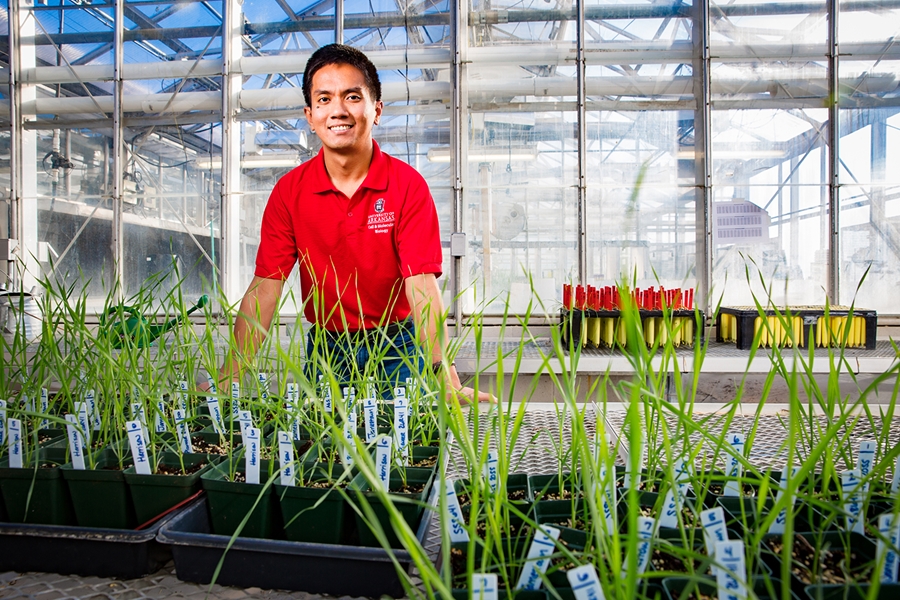
Dennis Lozada wanted to be a medical doctor. But, a leap of faith brought him to Fayetteville to study wheat — a crop he had never even seen until he began graduate school at the University of Arkansas in 2013. With no regrets, Lozada said the decision was one of the best of his life.
Since childhood, Lozada has had a passion for helping others. He spent most his life thinking the best way to channel that passion was to become a medical doctor. However, after working with the International Rice Research Institute as an undergraduate, Lozada's career plans changed.
"When I saw first-hand the importance of agriculture, I knew that was the sector I needed to be in," he said.
Lozada refocused his undergraduate research on rice and intended to pursue that same research focus in graduate school. But, when University of Arkansas professor Esten Mason pitched him the idea of studying wheat breeding in the university's cell and molecular biology program, he took the chance and again changed his course.
"Things have definitely turned out differently than I expected them to, but I'm enjoying it," he said.
Lozada is trying to breed wheat that has a higher grain yield and is adaptable to a wider range of climate environments than current wheat varieties. He works with 240 wheat varieties to identify regions in the wheat genome that affect variation for grain yield and adaptation traits. By doing so, he could potentially identify wheat varieties that have higher yield and productivity in target environments.
The significance of his research earned Lozada a 2015 Monsanto Beachell-Borlaug International Scholars Program fellowship, which is valued at $100,000. The fellowship will afford him the opportunity to conduct research at the International Maize and Wheat Improvement Center in Mexico during the spring 2017 semester.
Lozada is still in the early stages of his research, but is excited for what is ahead and its potential impact.
"Wheat is one of the most important crops in the world," he said. "Knowing that the results of my research could potentially impact farmers and consumers by producing better crops for more people is something that is encouraging for me."
Lozada holds a bachelor's degree in biology from the University of the Philippines at Los Baños. He is on track to complete his doctoral degree in cell and molecular biology at the University of Arkansas in 2018.
Topics
Contacts
Amanda Cantu, director of communications
Graduate School and International Education
479-575-5809, amandcan@uark.edu